Magic Mushroom Gummies: Navigating the Mind-Body Connection with Safety Tips
Magic Mushroom Gummies are modern, controlled doses of psilocybin from traditional mushrooms, offeri…….
In the ever-evolving realm of wellness and mental health, a unique and intriguing synergy has emerged, bridging the gap between ancient botanical wisdom and modern therapeutic practices. We delve into the world of magic mushroom gummies—a contemporary iteration of an ancient tradition—and its profound impact on the mind-body connection. This article aims to guide readers through the intricate relationship between these tiny organisms and their potential to revolutionize self-care and psychological well-being. By exploring various facets, from scientific understanding to global adoption, we uncover the significance of magic mushroom gummies in shaping a holistic approach to mental health management.
Magic mushroom gummies are edible preparations derived from psilocybin mushrooms, a type of fungi known for their psychotropic properties. Psilocybin, the active compound, is a natural serotonin receptor agonist, which means it interacts with the brain’s neurotransmitters, particularly serotonin, to induce altered states of consciousness and enhanced cognitive functions. When consumed in controlled doses, magic mushroom gummies can facilitate profound mental and emotional experiences, often referred to as “microdosing.”
The mind-body connection refers to the intricate relationship between one’s thoughts, emotions, and physical well-being. It is a holistic concept recognizing that mental and physical health are interwoven, and nurturing one aspect positively influences the other. In the context of magic mushroom gummies, this connection is explored through their potential to induce powerful introspective experiences, promote self-awareness, and facilitate behavioral changes that contribute to overall well-being.
The use of psilocybin mushrooms for spiritual and medicinal purposes dates back centuries in various cultures, particularly in Mesoamerica and South America. Indigenous communities have long recognized the therapeutic benefits of these fungi, using them in rituals for healing, vision questing, and spiritual guidance. However, with the advent of modern medicine and psychological practices, interest in magic mushrooms waned, and they became largely associated with recreational use.
In recent years, there has been a resurgence of interest in psilocybin-based therapies, driven by emerging scientific research highlighting their potential therapeutic benefits. Studies have explored microdosing as an aid to anxiety reduction, depression management, and even creative enhancement. This shift in perception has led to the development of magic mushroom gummies as a regulated and accessible form of therapy, allowing individuals to harness the power of psilocybin without the intense setting traditionally associated with its use.
The global impact of magic mushroom gummies and mind-body connection is evident across diverse regions, each embracing this concept in unique ways:
North America: The United States and Canada have been at the forefront of legalizing psilocybin therapy and research. Cities like San Francisco and New York have seen a surge in “microdosing cafes” offering magic mushroom-infused edibles, catering to a growing interest in alternative wellness practices.
Europe: Countries like the Netherlands, Germany, and Switzerland have adopted progressive stances on psilocybin research, with clinical trials exploring its therapeutic potential. The legal landscape varies across Europe, but some countries allow controlled access for medical purposes, fostering a thriving research environment.
South America: Brazil and Peru have rich cultural histories of psilocybin mushroom use, and both nations are leading the way in legitimizing their traditional practices. These countries host retreats and research facilities, attracting international interest in indigenous healing methods.
Asia: While some Asian countries maintain strict controls on psychedelic substances, others, like Japan, have shown growing acceptance. Research into psilocybin’s effects on mental health is gaining traction, fueled by a rising demand for innovative wellness solutions.
The magic mushroom gummies market is experiencing significant growth, driven by increasing public awareness of alternative therapies and the therapeutic potential of psilocybin. According to a report by Grand View Research, the global psychedelic therapy market size was valued at USD 6.4 billion in 2021 and is expected to grow at a compound annual growth rate (CAGR) of 28.7% from 2022 to 2030. A substantial portion of this growth is attributed to the rising popularity of magic mushroom gummies as a consumable therapy.
The therapeutic potential of psilocybin has attracted significant investment from venture capital firms and pharmaceutical companies. Startups focused on developing psilocybin-based therapies and delivering them through innovative products like gummies are securing substantial funding. For instance, MindMed, a Canadian biotech company, has raised millions in investments to advance its psilocybin-assisted therapy programs.
As the market matures, magic mushroom gummies have the potential to contribute to economic systems in several ways:
Health Care: Psilocybin therapies could reduce healthcare costs associated with chronic mental health conditions, as studies suggest their effectiveness in managing anxiety and depression.
Wellness Industry: The growing popularity of alternative wellness practices indicates a shift towards preventive care, potentially reducing the economic burden of stress-related illnesses.
Tourism: Countries embracing psilocybin tourism are seeing increased visitor numbers, contributing to local economies through accommodations, events, and cultural experiences.
One of the most well-researched applications of magic mushroom gummies is their potential to alleviate anxiety and depression. Studies have shown promising results, with microdosed psilocybin demonstrating significant reductions in symptoms compared to placebo groups. Participants often report increased emotional well-being, improved sleep quality, and enhanced overall life satisfaction.
Psilocybin is known for its ability to expand cognitive flexibility and enhance creativity. Magic mushroom gummies have been explored as a tool for artists, musicians, and writers seeking to stimulate new ideas and break through creative blocks. Users often report increased flow states and heightened sensory perception, leading to more productive and innovative thinking.
The mind-body connection is vital in addiction recovery, and magic mushroom gummies may play a role in this process. Some studies suggest that psilocybin can help individuals develop new coping mechanisms, reduce cravings, and address underlying psychological issues contributing to addiction. This approach offers a complementary therapy when combined with traditional rehabilitation programs.
One of the most profound aspects of magic mushroom gummies is their capacity to induce deep introspective experiences. Users often report increased self-awareness, heightened emotional sensitivity, and a deeper understanding of themselves and their lives. This can lead to personal growth, improved relationships, and a greater sense of purpose.
The scientific community has increasingly recognized the therapeutic potential of psilocybin, leading to numerous studies exploring its benefits:
Neuroplasticity: Research using neuroimaging techniques has shown that psilocybin can induce changes in brain connectivity, particularly in regions associated with self-referential processing and emotional regulation. These effects suggest increased neuroplasticity, offering insights into the brain’s ability to adapt and change.
Mental Health Disorders: Clinical trials have demonstrated the effectiveness of psilocybin therapy for major depressive disorder, post-traumatic stress disorder (PTSD), and anxiety disorders. A 2016 study published in The Lancet Psychiatry found that a single psilocybin session significantly reduced depression symptoms, with effects lasting up to six months.
Neurological Conditions: Psilocybin has shown promise in treating cluster headaches and smoking cessation, providing alternative options for individuals struggling with these challenging conditions.
While magic mushroom gummies hold immense potential, several challenges and considerations must be addressed:
Legal and Regulatory Issues: The legal status of psilocybin varies globally, and navigating these regulations is crucial for ensuring access to safe and effective therapies. Countries and regions that legalize psilocybin face the challenge of establishing robust regulatory frameworks to guide its use.
Dosage and Safety: Microdosing involves precise dosing, and excessive consumption can lead to unpleasant experiences. Ensuring safety and providing educational resources are essential to prevent adverse reactions.
Access and Equity: Making magic mushroom gummies accessible to diverse populations is essential for addressing mental health disparities. Cost considerations and healthcare accessibility should be addressed to ensure that these therapies are available to those who need them most.
Research Limitations: Despite growing evidence, research into psilocybin therapy is still relatively new. Larger, long-term studies are needed to fully understand its effects and establish best practices.
The future of magic mushroom gummies and mind-body connection holds immense promise:
Personalized Medicine: As research advances, personalized psilocybin therapies may become the norm, tailored to individual needs and preferences. This could involve combining microdosing with other therapeutic modalities for optimal results.
Integration into Healthcare Systems: With growing evidence and regulatory support, magic mushroom gummies have the potential to be integrated into mainstream healthcare practices, offering alternative treatments for a wide range of mental health conditions.
Cultural Respect and Indigeneity: Recognizing the cultural significance of psilocybin mushrooms in indigenous communities is essential. Collaborating with these communities can ensure respectful and ethical practices while preserving traditional knowledge.
Public Education: Increasing public awareness about the safe and responsible use of magic mushroom gummies can foster a more informed society, reduce stigma, and promote open dialogue about mental health.
The exploration of magic mushroom gummies and their impact on the mind-body connection is a fascinating journey at the intersection of science, culture, and well-being. As research continues to uncover the therapeutic potential of psilocybin, we move closer to innovative approaches for improving mental health and enhancing human experiences. With careful consideration, education, and responsible integration into healthcare systems, magic mushroom gummies may offer new paths towards healing, personal growth, and a deeper connection with ourselves and the world around us.
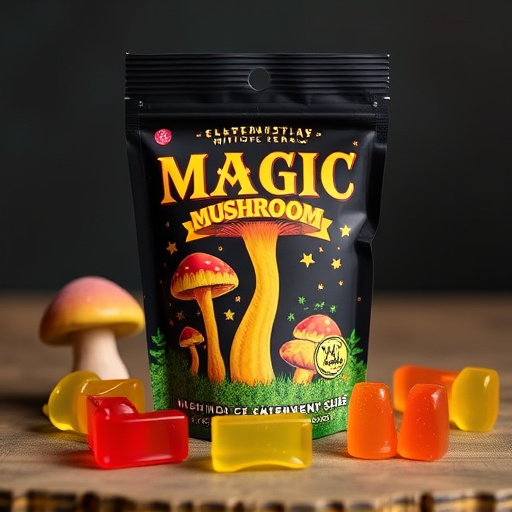
Magic Mushroom Gummies are modern, controlled doses of psilocybin from traditional mushrooms, offeri…….
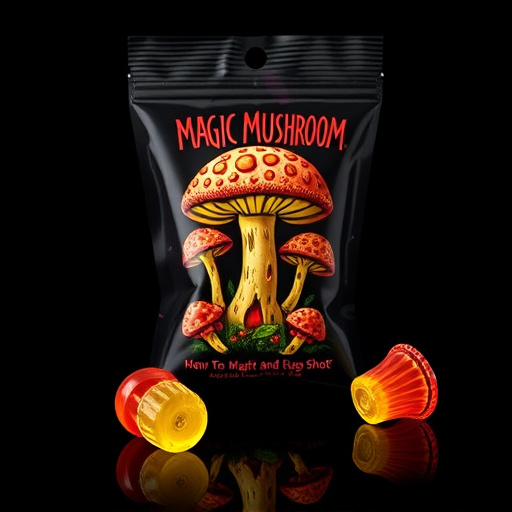
Magic Mushroom Gummies are gaining popularity as an accessible and discreet way to explore the mind-…….
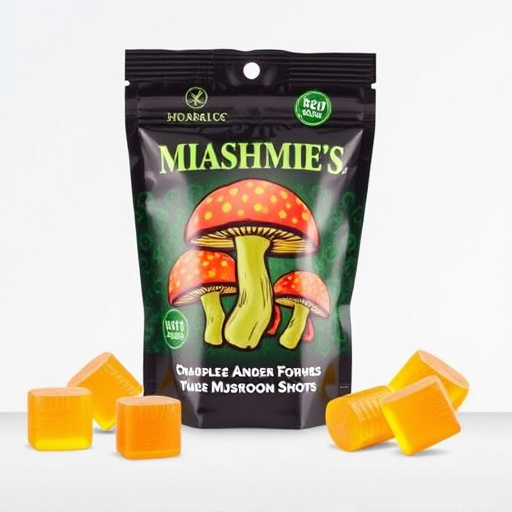
Magic Mushroom Gummies, rich in psilocybin, offer a legal path to explore the mind-body connection t…….
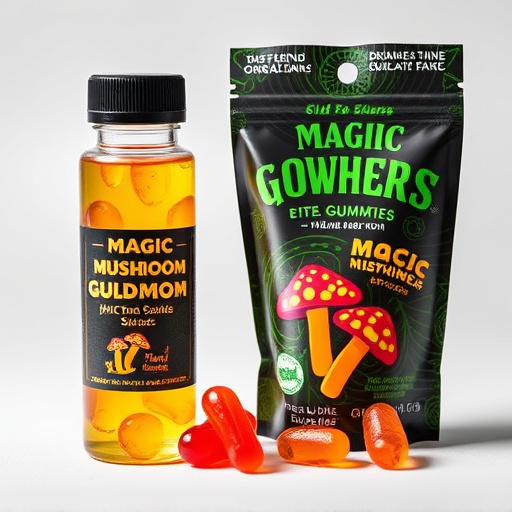
Magic Mushroom Gummies represent a modern, controlled approach to psychedelic therapy, leveraging ps…….
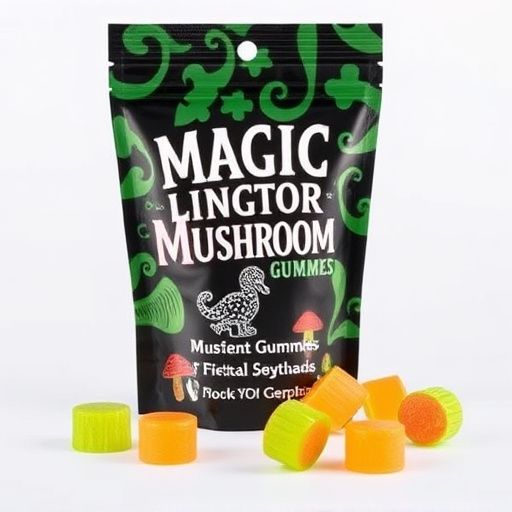
Magic Mushroom Gummies, containing psilocybin, offer a safe and legal way to explore the mind-body c…….
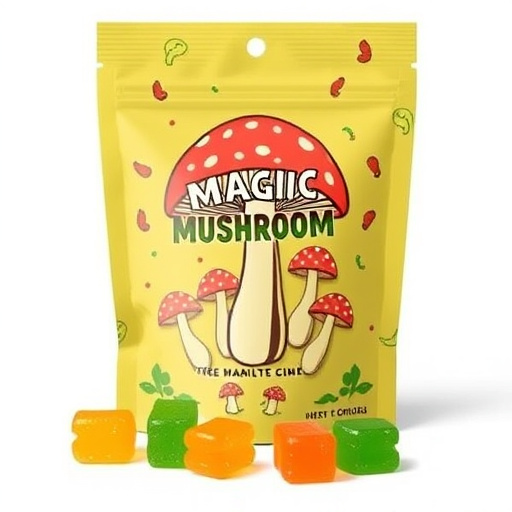
Magic Mushroom Gummies represent a modern, safe way to explore the mind-body connection through cont…….
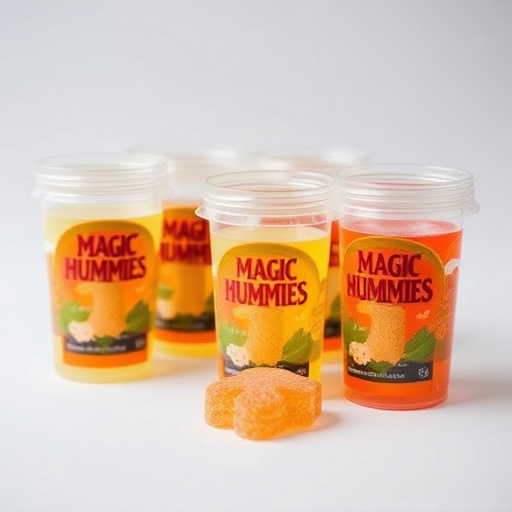
Magic Mushroom Gummies are modern, edible treats infused with psilocybin or psilocin, offering a con…….
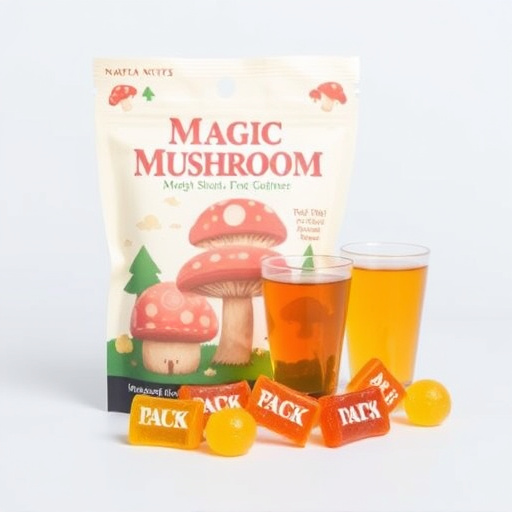
Magic Mushroom Gummies represent a modern, safe, and discrete way to explore and enhance the Mind-Bo…….